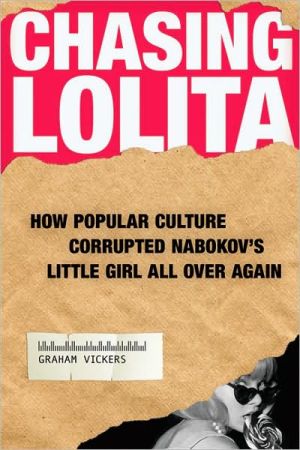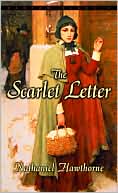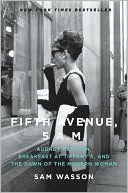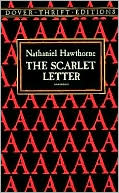Chasing Lolita: How Popular Culture Corrupted Nabokov's Little Girl All Over Again
In the summer of 1958, a twelve-year-old girl took the world by storm—Lolita was published in the United States. This child, so fresh and alive, yet so pitiable in her abuse at the hands of the novel's narrator, engendered outrage and sympathy alike, and has continued to do so ever since.\ \ Yet Lolita's image in the broader public consciousness has changed. No longer a little girl, Lolita has come to signify a precocious temptress, a cunning underage vixen who'll stop at nothing to get...
Search in google:
In the summer of 1958, a twelve-year-old girl took the world by storm—Lolita was published in the United States. This child, so fresh and alive, yet so pitiable in her abuse at the hands of the novel's narrator, engendered outrage and sympathy alike, and has continued to do so ever since. Yet Lolita's image in the broader public consciousness has changed. No longer a little girl, Lolita has come to signify a precocious temptress, a cunning underage vixen who'll stop at nothing to get her man. How could this have happened? Chasing Lolita, published on the fiftieth anniversary of Lolita's American publication, is an essential contemporary companion to Vladimir Nabokov's great novel. It establishes who Lolita really was back in 1958, explores her predecessors of all stripes, and examines the multitude of movies, theatrical shows, literary spin-offs, artifacts, fashion, art, photography, and tabloid excesses that have distorted her identity and stolen her name. It considers not just the "Lolita effect" but shifting attitudes toward the always volatile mix of sex, children, and popular entertainment—from Victorian times to the present. And it also looks at some real-life cases of young girls who became the innocent victims of someone else’s obsession—unhappy sisters to one of the most affecting heroines in American fiction, and one of the most widely misunderstood.Publishers WeeklyFor 50 years, the nymphet Lolita (whose real name is Dolores Haze) has existed in the collective imagination. This sleek and knowing book takes an activist approach rather than a voyeuristic one to search out, first, the sources of Nabokov's once-censored novel, and then its impact and all the misunderstandings surrounding his celebrated character. Vickers (coauthor, Neal Cassady: The Fast Life of a Beat Hero) examines the possible sources of inspiration, from Alice Liddell of Lewis Carroll fame to Fanny Brice's Baby Snooks; from an obscure German writer with the suggestive name von Lichberg to Edgar Allan Poe; from Chaplin's life story to a then unpublished novella by Nabokov himself. Most of the book is a romp through popular culture: the Stanley Kubrick film and Adrian Lyne's remake-the release unfortunately coincided with the murder of JonBenet Ramsey-as well as dismal stage adaptations; Brooke Shields's roles and ads and Japanese gothic Lolita fashion. Vickers succeeds admirably and entertainingly in his goal of separating Nabokov's character from "the many copied and counterfeited Lolitas." 27 b&w photos. (Aug.)Copyright © Reed Business Information, a division of Reed Elsevier Inc. All rights reserved.
Introduction 11 The Real Life of Dolores Haze: Just the Facts 52 Casebooks and Fantasies: Dolores Haze's Oft-Told Tale 233 A Very 1950s Scandal: Hurricane Lolita 414 Lolita in Movieland 1: Little Victims and Little Princesses 555 Lolita in Movieland 2: "Pedophilia Is a Hard Sell" 716 On the Road: Lolita's Moving Prison 937 Take One: How Did They Ever Make a Film of Lolita? 1098 Dramatic Arts: Lolita Center Stage 1319 The Spirit of Free Enterprise: Every Foul Poster 14510 Tabloids and Factoids: The Press and Lolita 16511 Take Two: Once More, with Feeling 18512 Blood Sisters: Some Responses to Lolita 205Conclusion 225Bibliography 233Index 235
\ From the Publisher"In his outrageously readable literary criticism-slash-pop culture survey of her fate, Graham Vickers is determined to defend Lolita's honor through a keen analysis of Nabakov's original novel." —Toronto Star\ "Ambitious . . . a companion book to Nabokov's misunderstood masterpiece." —Bitch\ \ \ \ \ \ Publishers WeeklyFor 50 years, the nymphet Lolita (whose real name is Dolores Haze) has existed in the collective imagination. This sleek and knowing book takes an activist approach rather than a voyeuristic one to search out, first, the sources of Nabokov's once-censored novel, and then its impact and all the misunderstandings surrounding his celebrated character. Vickers (coauthor, Neal Cassady: The Fast Life of a Beat Hero) examines the possible sources of inspiration, from Alice Liddell of Lewis Carroll fame to Fanny Brice's Baby Snooks; from an obscure German writer with the suggestive name von Lichberg to Edgar Allan Poe; from Chaplin's life story to a then unpublished novella by Nabokov himself. Most of the book is a romp through popular culture: the Stanley Kubrick film and Adrian Lyne's remake-the release unfortunately coincided with the murder of JonBenet Ramsey-as well as dismal stage adaptations; Brooke Shields's roles and ads and Japanese gothic Lolita fashion. Vickers succeeds admirably and entertainingly in his goal of separating Nabokov's character from "the many copied and counterfeited Lolitas." 27 b&w photos. (Aug.)\ Copyright © Reed Business Information, a division of Reed Elsevier Inc. All rights reserved.\ \ \ BitchAmbitious . . . a companion book to Nabokov's misunderstood masterpiece.\ \ \ \ \ Library JournalForty-two years after the 1955 publication of Vladimir Nabokov's Lolita, as Adrian Lyne's adaptation of the novel was screening in U.S. theaters, Nabokov's son commented that someone could write a book on the title character's many permutations. Vickers (Key Moments in Architecture) took that comment as inspiration to write this quirky title, in which he attempts to give a more objective view of Nabokov's nymphet than Nabokov's narrator was able to provide. However, his insistence that he is offering "facts" about Dolores Haze (Lolita's "real" name in the novel) suggests a blurring of the distinction between fact and fiction; at one point, he even advises readers to look to the novel itself to find the "real" Lolita. Further, Vickers's discussion of every film and stage adaptation of Lolita is excessive. Far more valuable and compelling are his examination of society's changing perspectives of young girls through the years and his discussion of what constitutes art vs. what is merely perverse. Although this book tells us more about Lolita than we might want to know, it also tells us more about ourselves than we might want to admit. Recommended.\ —Anthony Pucci\ \ \








